
Ah, fall – the season of vibrant leaves, cozy sweaters, and pumpkin-spiced everything. But for many, it also brings the less-than-pleasant arrival of fall allergies.
If you’re one of those people sneezing and sniffling your way through the autumn months, you’re not alone. The constant sneezing, itchy eyes, and runny nose can make it difficult to focus at work or school. Outdoor activities which should be enjoyable – such as hiking or sitting by the bonfire – can become a nightmare when you’re constantly battling symptoms. Even indoor environments aren’t always safe havens, as dust mites and mold spores can thrive there.
Before you reach for your over-the-counter antihistamines, consider this: with Chinese herbs for fall allergies, you can take a more natural and holistic approach to tackling those pesky symptoms.
Understanding Fall Allergies
First things first, what exactly are fall allergies? And how are they different from spring allergies?
Spring allergies are typically caused by tree pollen, which is released in large amounts during spring as trees bloom and release their pollen into the air. While spring allergies get a lot of attention, fall allergy culprits can be just as troublesome:
- Ragweed Pollen
Ragweed is the most common cause of fall allergies, mostly due to how much it spreads. Each ragweed plant can produce billions of pollen grains which can travel for miles. Ragweed starts releasing pollen in late summer and can continue until the first frost. - Mold Spores
Mold thrives in damp environments, which makes piles of fallen leaves a perfect breeding ground. Our homes are also more likely to grow mold in the damp, colder autumn months. Inhaling airborne mold spores can irritate our airways and cause allergy symptoms. - Dust Mites
Dust mites live in our carpets, bedding, and upholstered furniture. As the weather cools and we start to turn on our heaters, these mites are spread through the air and can trigger allergy symptoms.
Common Symptoms of Fall Allergies
Fall allergy symptoms can range from mildly annoying to downright debilitating. Beyond leaving you sniffly and foggy-headed during the day, they can also disturb your sleep. If you have one or more of these symptoms, you may be experiencing fall allergies:
- Sneezing
- Runny or stuffy nose
- Itchy eyes, nose, and throat
- Coughing and wheezing
- Skin irritation (like itching, hives, or dryness)
The good news is that you don’t have to succumb to these symptoms. Fall allergies may be frustrating, but they are possible to avoid with holistic help. The key to managing these symptoms lies in understanding their root causes and addressing them effectively – starting with Chinese herbal medicine.
Traditional Chinese Medicine: A Natural Approach to Allergies
Health in Traditional Chinese Medicine is all about balance. When we are in a state of balance, our bodies can function well and we are in good health. We can easily adapt to changes around us and avoid illnesses.
Allergies, however, are a sign your system is out of balance. TCM views them as a result of both external “pathogens” (like wind and dampness) and internal imbalances (such as a weakened immune system, which TCM calls Wei Qi). Let’s take a closer look:
- External Pathogens: In TCM, factors like wind and dampness are considered external pathogens that invade the body, leading to symptoms like sneezing and a runny nose. Imagine the wind blowing pollen right into your respiratory system – no wonder you’re sneezing!
- Internal Imbalances: On the flip side, internal imbalances, such as a weakened Wei Qi (which you can think of as your body’s defense mechanism), make you more susceptible to these external pathogens. If your Wei Qi is strong, it acts like a fortress, protecting you from allergens.
Through therapies like acupuncture, moxibustion, and Chinese herbal formulas, TCM helps restore balance by strengthening your body’s natural defenses and eliminating those external pathogens causing discomfort.
The Best Chinese Herbs for Fall Allergies
TCM offers a range of herbal formulas to address specific symptoms and the root causes of allergies. Where Western medicines like antihistamines only provide temporary relief by overriding your immune system, herbal medicines offer both relief and prevention by helping your body better adapt to these allergens and the changing seasons.
Whether you’re dealing with sneezing, itchy eyes, skin reactions, or even sinus infections, one of these natural herbal remedies can help:
- Unblock & Breathe with Bi Yan Tang
Bi Yan Tang is a formula designed to tackle nasal and sinus issues, and is particularly effective for dust allergies. This formula helps to clear nasal congestion, reduce inflammation, and alleviate sneezing. From a TCM perspective, Bi Yan Pian works by expelling wind and clearing heat, which are often the underlying causes of allergic reactions in TCM. By addressing these imbalances, Bi Yan Pian helps to relieve the discomfort caused by dust and other airborne allergens so you can breathe freely.
-
Sale!
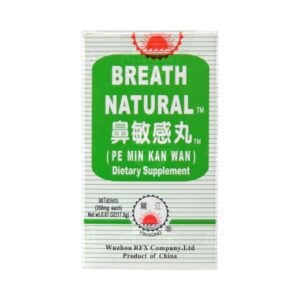 Pe Min Kan Wan (Bi Min Gan Wan) – Breath Natural
Starting at $6.49
Add to CartSelect options
This product has multiple variants. The options may be chosen on the product page
Pe Min Kan Wan (Bi Min Gan Wan) – Breath Natural
Starting at $6.49
Add to CartSelect options
This product has multiple variants. The options may be chosen on the product page
- Soothe Sinuses with Pe Min Kan Wan
If your fall allergies have progressed into a sinus infection, Pe Min Kan Wan is a better choice. This TCM remedy is specifically formulated to address severe nasal congestion, sinus pain, and inflammation. The herbs in Pe Min Kan Wan work together to clear heat, dispel wind, and resolve phlegm in order to alleviate that severe pressure and discomfort you get with a sinus infection.
- Ease Skin Allergies with Xiao Feng Wan
Allergies don’t just affect your respiratory system; they can also wreak havoc on your skin. In TCM, the Lungs, sinuses, and skin are all connected, which means anything attacking your respiratory system can also affect your skin. For fall allergy reactions like itching, hives, or eczema, Xiao Feng Wan is the best choice. This formula focuses on dispelling wind, clearing heat, and eliminating dampness, which are often the root causes of skin issues in TCM. By restoring balance to your body’s internal environment, Xiao Feng Wan helps to calm skin irritation and reduce allergic reactions.
- Regulate Immunity with Real Mushrooms 5 Defenders
Supporting your immune system is crucial in both preventing and managing fall allergies. In many cases, the immune system is working overtime, reacting to things (like dust or pollen) that aren’t really threats. Inflammation and overwork are often at the root of an overactive immune system, which is why an immune tonic like Real Mushrooms 5 Defenders can bring balance. This blend includes powerful medicinal mushrooms like Reishi, Shiitake, and Maitake, known for their immune-boosting properties. These mushrooms help to strengthen your body’s defenses, making you less susceptible to allergens and reducing the severity of allergic reactions.
-
Sale!
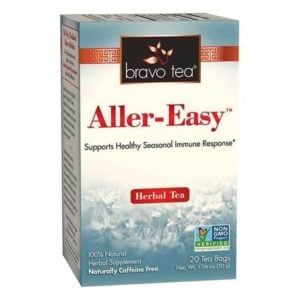 Aller-Easy Tea – by Bravo Tea
Starting at $6.99
Add to CartSelect options
This product has multiple variants. The options may be chosen on the product page
Aller-Easy Tea – by Bravo Tea
Starting at $6.99
Add to CartSelect options
This product has multiple variants. The options may be chosen on the product page
- Steer Clear of Allergy Season with Aller-Easy Tea
Want a gentle way to skip the allergies this fall? Drinking Aller-Easy Tea by Bravo Teas is a delightful and soothing way to avoid (or reduce) common allergy symptoms. This herbal blend helps build your resistance to allergies while offering quick relief from common allergic reactions (such as sneezing, itchy eyes, and a runny nose) if you do fall victim. Drinking Aller-Ease Tea regularly not only helps to alleviate acute allergy symptoms but also promotes overall respiratory health – add it to your daily routine to stay well through allergy season and beyond.
TCM-Inspired Lifestyle Tips to Prevent Allergies this Fall
Beyond herbal formulas, TCM offers some sage advice for boosting your defenses through simple lifestyle habits. Here are three simple yet effective TCM-based tips to help you strengthen your immunity and keep allergies at bay this season.
- Wear a Scarf to Protect Your Wei Qi
In TCM, Wei Qi is considered your body’s defensive energy (or immune system), which acts as a shield against external pathogens (including allergens). One practical way to protect your Wei Qi, especially during the cooler fall months, is to keep your neck warm by wearing a scarf. The neck area is particularly vulnerable to cold and wind, which can weaken your Wei Qi and make you more susceptible to allergies. - Drink Warm Herbal Teas
If you’ve been sipping iced tea or cold beverages all summer, now is the time to switch to warming drinks. Warm teas not only help to keep your body hydrated but also support your digestive system, boost energy, and enhance your immune function. Try these:
- Ginger Honey Tea: To boost digestion, immunity, and soothe sore throats.
- Lung Soother by Bravo Teas: To support Lung and respiratory health.
- 6 Mushroom Defense Tea: To boost immunity with medicinal mushrooms.
- Triple Immunity Tea: To build resilience every day.
-
Sale!
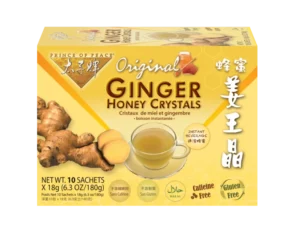 Ginger Honey Crystals – by Prince of Peace
Starting at $5.99
Add to CartSelect options
This product has multiple variants. The options may be chosen on the product page
Ginger Honey Crystals – by Prince of Peace
Starting at $5.99
Add to CartSelect options
This product has multiple variants. The options may be chosen on the product page
-
Sale!
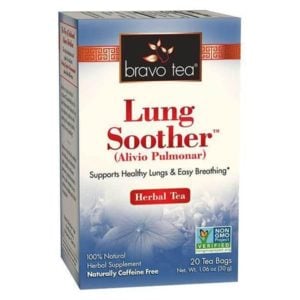 Lung Soother Tea – by Bravo Tea
Starting at $6.99
Add to CartSelect options
This product has multiple variants. The options may be chosen on the product page
Lung Soother Tea – by Bravo Tea
Starting at $6.99
Add to CartSelect options
This product has multiple variants. The options may be chosen on the product page
-
Sale!
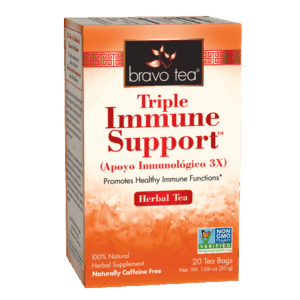 Triple Immune Support – by Bravo Tea
Starting at $6.99
Add to CartSelect options
This product has multiple variants. The options may be chosen on the product page
Triple Immune Support – by Bravo Tea
Starting at $6.99
Add to CartSelect options
This product has multiple variants. The options may be chosen on the product page
-
Sale!
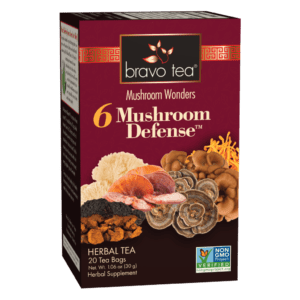 6 Mushroom Defense Tea – by Bravo Tea
Starting at $7.99
Add to CartSelect options
This product has multiple variants. The options may be chosen on the product page
6 Mushroom Defense Tea – by Bravo Tea
Starting at $7.99
Add to CartSelect options
This product has multiple variants. The options may be chosen on the product page
- Practice Deep Breathing Exercises
According to TCM, the Lungs are directly related to the skin and respiratory health, so strengthening your Lung Qi can help prevent and alleviate allergy symptoms. Deep breathing exercises are a simple way to do this (while also relieving stress!).
Spend a few minutes each day practicing mindful deep breathing. Inhale deeply through your nose, allowing your abdomen to expand, and exhale slowly through your mouth. This not only calms the mind but also strengthens your Lung Qi and improves respiratory health. You can also try breathing exercises like the 4-7-8 breath or alternate nostril breathing.
An Allergy-Free Autumn Starts Here
Allergies don’t have to put a damper on your fall fun. And, you don’t have to rely on medications (and their sleepy side effects) to get relief, either. With Chinese herbs for fall allergies and a few helpful TCM lifestyle habits, you can build your resilience and keep allergies at bay.
Ready to find your allergy-relief formula? Shop our full collection here!


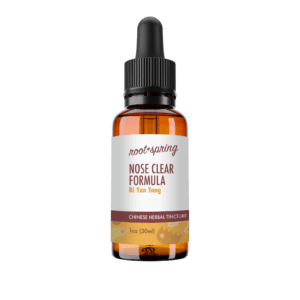 Bi Yan Tang (Nose Clear Formula) – Liquid Extract (Tincture)
Bi Yan Tang (Nose Clear Formula) – Liquid Extract (Tincture)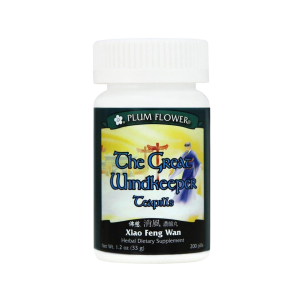 Plum Flower – The Great Windkeeper (Xiao Feng Wan)
Plum Flower – The Great Windkeeper (Xiao Feng Wan) 5 Defenders Mushroom Capsules by Real Mushrooms
5 Defenders Mushroom Capsules by Real Mushrooms